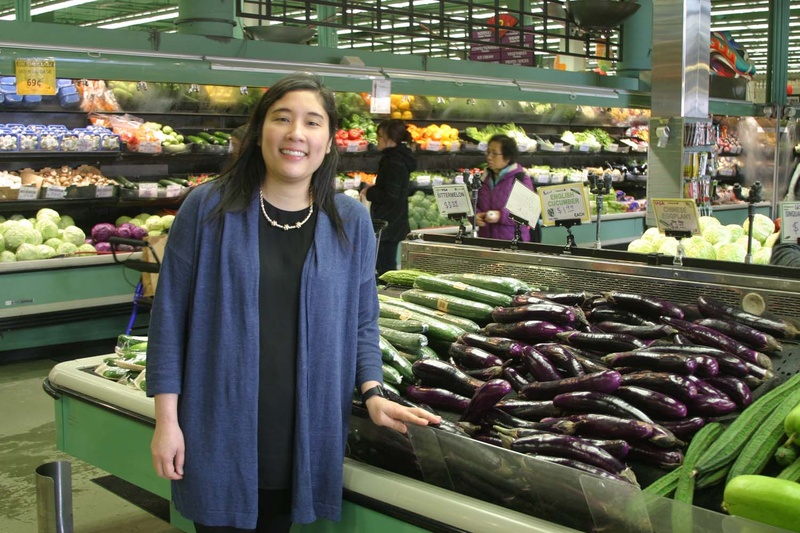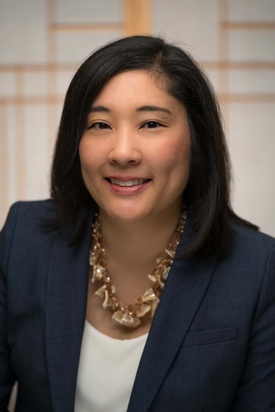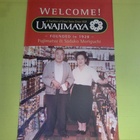Dennis Moriguchi as CEO
In 1868 (the first year of the Meiji era), a group of Japanese emigrated overseas for the first time. Their destination was Hawaii. 150 years have passed since then, and we are now in an era where fourth and fifth generation Japanese Americans are being born in Hawaii and on the American mainland.
It has been more than 90 years since Fujimatsu Moriguchi, who came to America (Tacoma, Washington) relatively late for a first-generation Japanese family, founded Uwajimaya. Over the years, Uwajimaya has been developed by Fujimatsu's second son, Tomio, and his seven children, who have worked together to make it a success.
In particular, Tomio Moriguchi, who led the company after the demise of Fujimatsu, made a great contribution. Not only was he successful in business, but he also contributed to the Japanese and other Asian American communities in Seattle, a city with a long history of Japanese immigrants.
She has been active as a member of a group of like-minded local leaders in preserving the historical heritage and economic development of the International District, which includes Chinatown and the former Japantown.
As the first generation of Japanese immigrants were aging, there was a call for a nursing home surrounded by Japanese culture, and he played a part in establishing the home. As a result, Seattle Keiro Nursing Home opened in South Seattle in 1975, and in 1985, Seattle Keiro opened in a corner of the International District.
He has also served as publisher of The North American Post, published in Seattle. The North American Post was formerly The North American Times, which was first published in 1902, and was revived as the North American Post after the war. As the aging of the first generation of Japanese Americans made it increasingly difficult to run a newspaper from the 1970s onwards, he took it on, believing that the newspaper needed to survive for the sake of the Japanese community, and today he continues to publish it along with the free paper Soy Sauce.
Tomio Moriguchi stepped down from his longtime position as Uwajimaya's CEO in 2007, and was replaced by his sister, Tomoko Matsuno. The business continued to grow, with sales growing from $78 million in 2007 to $120 million in 2016.
MBA from MIT
During this period of growth, Uwajimaya was faced with the issue of finding a successor, but as the second generation was nearing the end of their roles over time, a new leader (CEO) for the next generation was born at Uwajimaya in 2017. Denise Moriguchi, Tomio's eldest daughter.
Dennis was born in Seattle and graduated from a local high school before going on to Bowdoin College in Maine and earning an MBA from the MIT Sloan School of Management.
After entering the workforce, he worked as a product manager intern at Starbucks for three months, and then worked in various positions, including brand manager, at Bayer HealthCare, a major medical company, for about six years.
He joined Uwajimaya in May 2013, worked as marketing director for about a year, and became vice president and CEO (chief financial officer) in July 2015. He was appointed president in March 2016 and became president and CEO in February 2017 at the age of 40.
The choice of successor had been a topic of discussion among Uwajimaya executives for several years, including an outside firm that assessed and considered 37 candidates, including members of the next generation of family members and their spouses. By the time Dennis returned to Uwajimaya, he had been one of four candidates shortlisted.
In the end, she was selected in part because she has an MBA, but also because she is a visionary, has strategic thinking, and excels in using leadership skills to bring out the best in others.
In addition, some executives appreciated that she was a good listener and trusted by her family and employees alike, which was important given that the head of a family business requires the ability to bring both family and the company together.
When Dennis was little, he would often accompany his father to the company and sit amongst piles of paperwork watching his father work. He also helped out in the store by bagging items.
"My father has always been a big role model for me, both personally and professionally, so it's not surprising that I would end up following in his footsteps," he says.
Some of the things he learned from his father are to be patient, listen carefully to others, think big, and put his employees and community first.
Upon being appointed president, he stated his aspirations, saying, "I look forward to working with the next generation of leaders who bring new ideas, technologies and innovative perspectives to continue growing the company, building on the Uwajimaya brand and corporate strength that my grandfather, father, uncles and aunts have built."
He said he is proud of what everyone has created and feels incredibly fortunate to be taking over such a strong brand and healthy business.
Based on that, she has drawn up her own vision. She will emphasize foresight and planning, and will strengthen the brand strategy. She also wants to promote Uwajimaya not only as an Asian market, but also as a place that offers high-quality ingredients.
Currently, Uwajimaya operates four stores, including one in Uwajimaya Village in Seattle, and is expanding its business by opening a Publix near the Village, a commercial and residential building that was renovated from an old Publix Hotel. In the midst of this trend, Uwajimaya has taken another step forward as a rare example of a store founded by Japanese immigrants that has been maintained and expanded by a family-only business, with Dennis Moriguchi taking over as CEO.
As the only supermarket chain in America with Japanese capital and management, it will likely attract more attention in the future as it tries to balance the appeal of its Japanese legacy with the universal appeal needed to attract a wider customer base, and to what extent it will expand its business.
(Titles omitted)
References: "Hokubei Hochi", "International Examiner April 5, 2017-April 18, 2017", "The Seattle Times January 22, 2017", etc.
© 2018 Ryusuke Kawai








